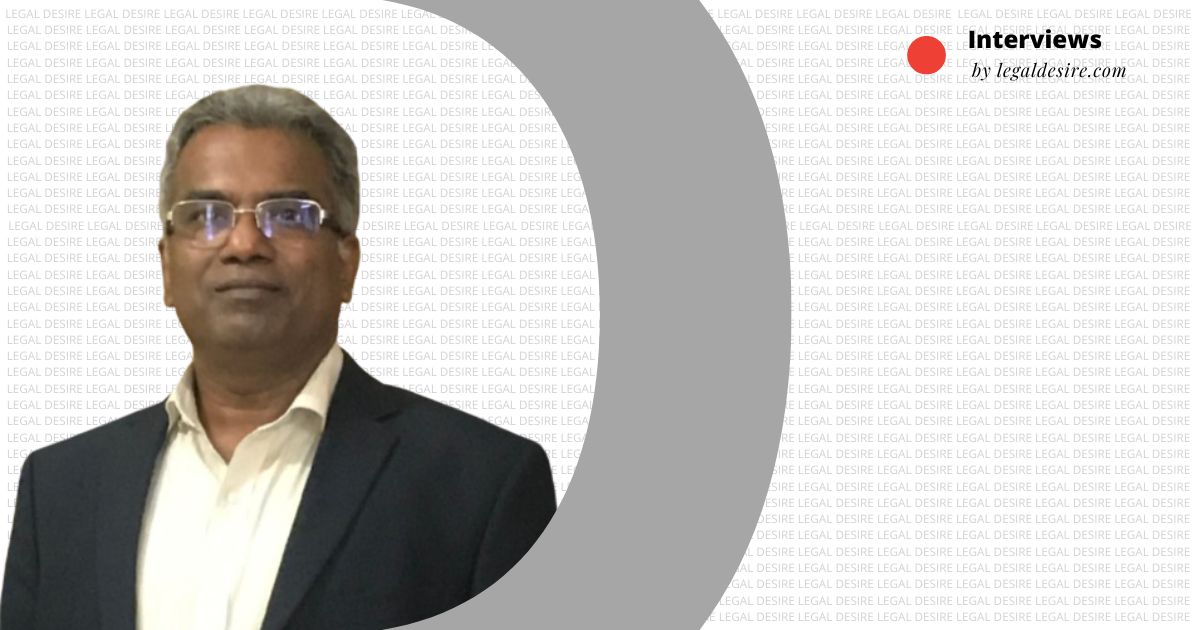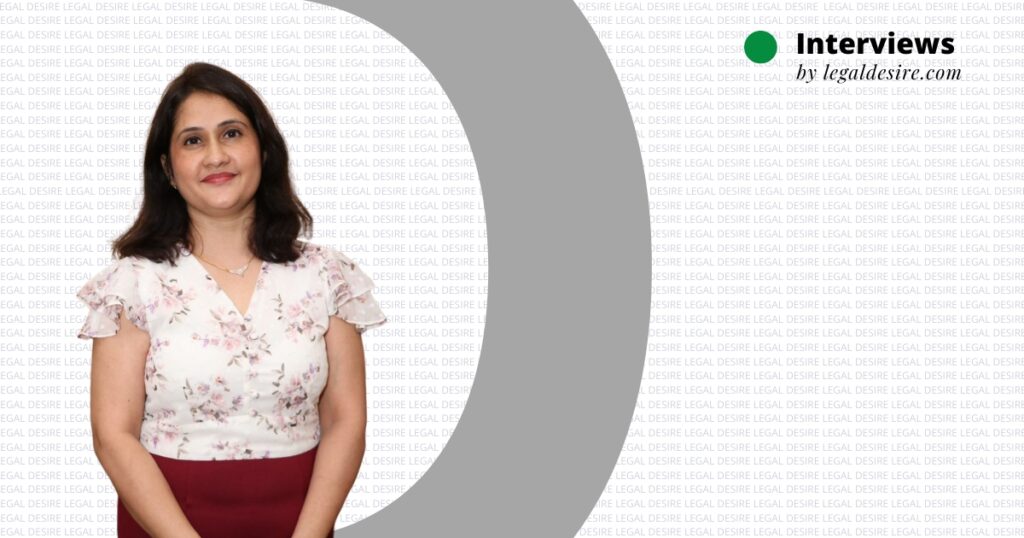Now Reading: In Conversation with Mr. Ramasubramanian, Dispute Resolution Professional, FCIArb
-
01
In Conversation with Mr. Ramasubramanian, Dispute Resolution Professional, FCIArb

In Conversation with Mr. Ramasubramanian, Dispute Resolution Professional, FCIArb
Mr. Ramasubramanian is a Dispute Resolution professional who started his career as an engineer who worked at construction projects in India. There after he did his law and started working in Commercial Contracts Management domain. Mr. Ramasubramanian spoke about the future of Arbitration in India with Apoorva Mehta, Executive Manager at Legal Desire.
Question: Can you tell us a little about yourself?
I am a DISPUTE RESOLUTION PROFESSIONAL with over 2 decades of international experience.
▪ Qualified Engineer and Lawyer.
▪ Fellow member of Chartered Institute of Arbitrators – UK
▪ Empanelled as Arbitrator with the Indian Council of Arbitration
▪ Member – Nani Palkhiwala Arbitration Centre
▪ Empanelled as an Arbitrator with the Maldives International Arbitration Centre
▪ Convener- Bureau for the Empowerment of Arbitration and Mediation (BEAM)
▪ Master Trainer – Arbitration / Mediation / Contracts and Commercial
Management
▪ Co-Author – Handbook on ARBITRATION for the practicing professionals –
published by ICSI Hyderabad – India
Question: Your education background before law was Engineer, What did your work look like as an engineer?
I started my career as an Engineer working at construction projects both in India and the middle east. As an Engineer, I was assigned to manage the time and cost of the Projects.
Subsequently I gained exposure / experience on the procurement of products and sub-contractors. The pathway thus landed myself on the Commercial Contracts Management domain. I had to handle multiple Contracts that eventually drifted my career away from Engineering into Contracts Management.
Parallelly, I acquired qualifications in Contracts Management and dispute resolution. This was a rewarding experience and escalated my career with the world’s leading Consultancy and Project Management organisation such as Parsons International. I had the privilege of being the part of the program management team of the Lusail City Qatar, which is the hosting venue of FIFA-2022.
Question: How come after such a long time you decided to do law?
All along my career, I was into the Contracts Management and dispute resolution for the Construction projects. Needless to say, Contract and Law are synonymous with the Genus and Species. Substantial part of my career was into the Construction dispute resolution involving various forms of Contracts and best practice protocols, prevailing internationally.
Meantime, I was pursuing pathway courses on International Arbitration with the Chartered Institute of Arbitrators – UK. Hence there is a natural affinity towards the legal studies, and I rightly envisaged that Law will complement Arbitration practice.
The opportune time arrived only later after I relocated to India. Subsequently I realise that it complements my professional domain.
Question: How was your experience working in Dubai?
Working in Dubai has inculcated professional ethics, especially punctuality in delivering our assigned tasks. Hence microplanning of our work was a norm.
Continuous Professional Development is another positive culture that always focussed on quality deliverables.
On a lighter vein, ‘uncertainty is a certainty’ in the gulf career; this has naturally thrusted up ticking our professional credentials in order to sustain the career.
Overall, Dubai was our second home and provided the best part of life, financially and personally. I owe all my good things to the golden city Dubai!
Question: What kind of legal challenges are faced by construction companies?
Since I have experience in both domestic and international projects, the major challenge faced by the construction companies in India is the polarised Contracts. Especially the Contracts from the state entities leave very few rights to the Contractors which is undesirable.
The contracts are terminated even for trivial reasons that often bankrupt the Contractors; similarly delayed payments, unlawful encashment of guarantees are the other major issues.
Question: What is the future of ADR in India according to you?
The visibility of ADR in the second-tier cities vouches the future in India. Earlier it was confined to the metros. But now thanks to legislations such as MSMED Act 2006, ADR is getting prominence !
There is a drastic shift towards ADR mechanisms in recent years and will only gain momentum in future also.
Awareness creation is the key! NGOs should be encouraged in this aspect. I am a Convener of an organisation called Bureau for the Empowerment of Arbitration and Mediation – BEAM. It is linking the Arbitration/ADR fraternity and Govt Law Colleges in imparting contemporary knowledge for the benefit of the students. We regularly visit Govt Law Colleges to spread awareness of ADR and conduct seminars / webinars in association with leading institutions and industry organizations.
Question: What is the response in India regarding ADR as of now?
Litigants, who are exhausted with the adversarial court system and their extraordinary delays seek expedited resolution via ADR.
Unfortunately, ADR is conducted very similarly to litigation processes with very thin differences unlike their international peers. It is mainly due to the fact that Arbitration tribunals consisted of retired judiciary.
However, optimism is the key and learned professionals are the need of the hour in streamlining the profession.
China, which has a relatively short Arbitration history, has gained immensely with the Institutional Arbitration which is in fact a major thrust in achieving great strides in building huge infrastructure. On the Contrary, Indian Arbitration especially Construction Arbitration is struggling, due to lack of Institutional Arbitration. We have only about 35 Institutional Arbitration as against 600 plus in China.
Let us hope the proposed Arbitration Council of India will fill the lacunae in this regard.
Question:What does your typical day at work look like?
I plan my day as per the hearing schedules. For a legal professional, there is no idle time. The time is divided between learning and application. I see that quality time is earmarked for the drafting tasks. Considerable time is spent on writing articles on LinkedIn.
Weekends – I deliver online training sessions for the professional bodies such as ICSI.
Question:What kind of working cultural differences exist between UAE and India?
The major working cultural difference I have noticed is the continuing professional development. In the UAE, there are many self-learning groups that are active during the weekends. It is very common to see people help each other on a pro bono basis for professional development.
Moreover, the companies in UAE are very keen in imparting training / development of their employees. All the big companies organise CPD (continuing professional development) sessions regularly. Thus the professionals keep themselves updated on the contemporaneous / best practices of their respective domain.
Question: What would you advise the young minds moving towards Arbitration?
I would suggest Investing on them unhesitatingly. They should attend as many training sessions both online and offline. This will enable them to gain different perspectives which is the key. They should learn to do research rather than ‘shallow reading’. It is essential to acquire as many case laws pertaining to different scenarios which is their asset.
Nowadays social media has become an extended arm for many. It is prudent to utilize Social media to demonstrate our professional skills which definitely yields great visibility.










